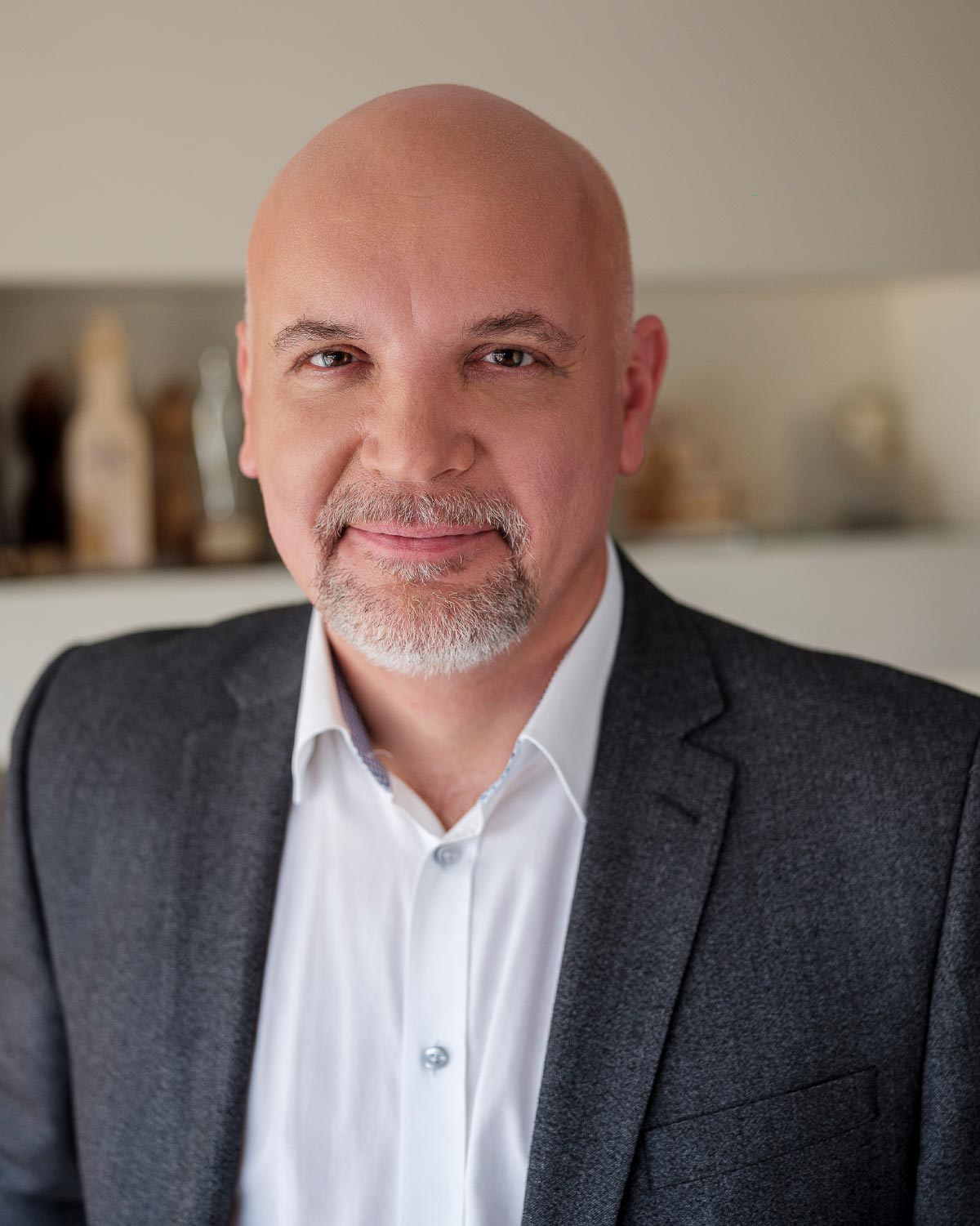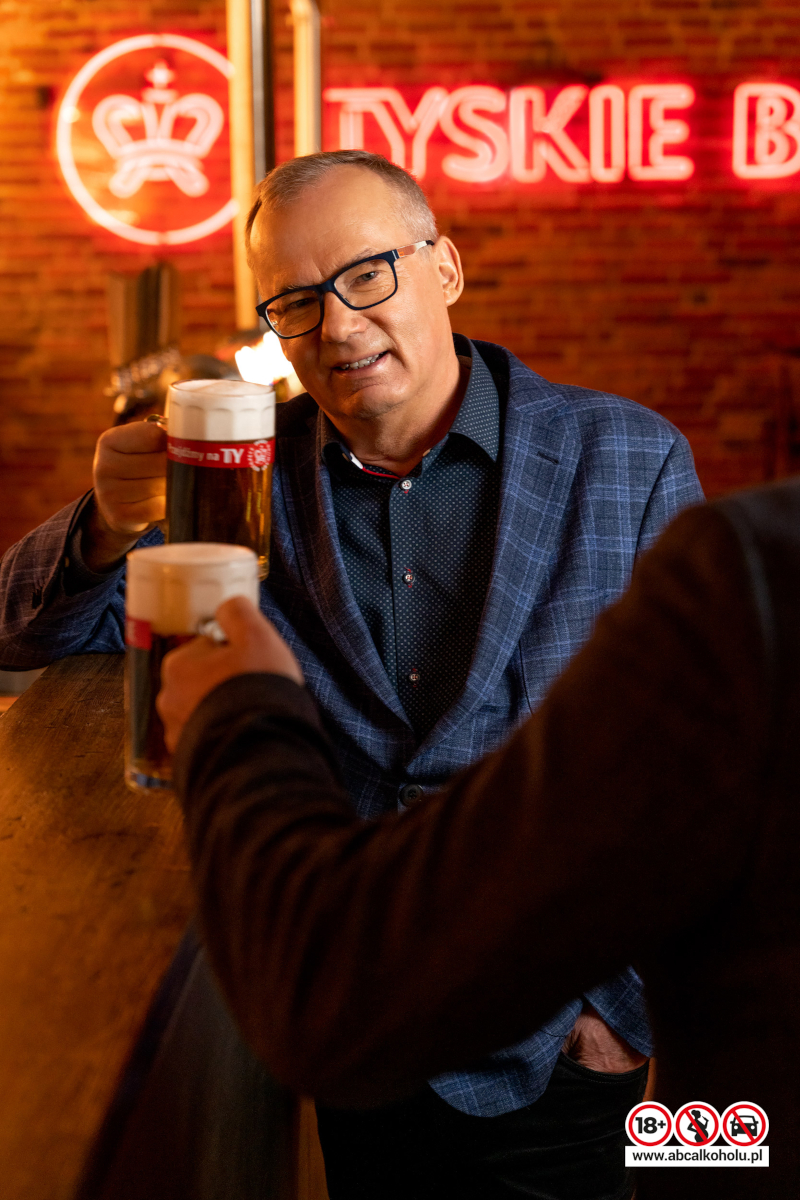Why the Czech Republic?
Wojciech Kantor:
As it often happens, it was mostly a coincidence. In 1992, when I was still in high school,
I went on a holiday with some friends to Czechoslovakia, the president of which was Vaclav Havel.
I was really impressed with Prague and I sure wasn't the only one.
Italian Slavist Angelo Maria Ripellino wrote a kind of a bible for the fans of the Czech capital
– “Magic Prague”. There is a passage explaining why this city on the Vltava River is so
addictive: “She slyly works her way into the soul with spells and enigmas to which she alone
holds the key. Prague does not release anyone she has taken hold of”. There was no other
choice but to fall in love with Prague and the Czech Republic.
Later on, “The Fateful Adventures of the Good Soldier Svejk During the World War” and
other book by Czech authors, movies, Czech radio stations (they play really nice music),
Czech TV… Next, it was time to learn the language, as it gave an opportunity to dive deeper
into the history and culture of the Czech Republic, or rather Czechoslovakia, as at that time it
was one common country of the Czechs and Slovaks. I was lucky to have a few friends who
for different reasons, including professional ones, were fluent in Czech. And once I fell in
with that crowd, I simply had to learn the language.
I started visiting the country more and more often. Our southern neighbors would say “the
Republic”. It is very common to say “I’m in the Republic”, just like in Poland we say “I’m in
the country” or “I’m in Poland”. It was very useful to be able to read in Czech. I could sign up
at the city library and National Library to borrow Czech books. By the end of my studies, I
started travelling to Prague with Polish tourists as a pilot and guide, working for different
travel agencies. All these trips made me write two guides around Prague, published in
Poland, and I have another book in the pipeline, although it will not be a classic guide.
"I do my best to combine passion and work. I think it is important to make sure that your job
is also a hobby, at least to some extent – that way, expanding your knowledge is a natural
and enjoyable thing."
What is it about Czech beer that attracts people from around the globe?
In Prague and across the Czech Republic, beer and beer taverns are not just beverage and
beerhouses – it is an institution, part of culture, history! It is also about the many famous and
grand personas, who were visiting those beerhouses. Bohumil Hrabal – one of the greatest
Czech writers – wrote „Vita nuova” where he claimed that there was no better thing than a
tavern bathed in sun. Beer is present in Czech literature and movies. Moreover, Czech beer
is registered product in the EU due to its place of manufacturing. It is a quality guarantee. It
received special certificates. The labels of Czech beer display a small sign, which can also
be found on Parma ham, feta cheese, Lisiecka sausage or oscypek sheep cheese.
What is your favorite thing about the Czech beer culture?
Attachment to tradition. Czechs are traditional in their approach to beer. And I like and
respect tradition. It does not mean that the country does not welcome new trendy beer
styles, which previously have not been popular across these regions. However, there are
fewer of them compared to other European countries or the world. I greatly enjoy classic
Czech pubs offering good beer with traditional beer snacks. This Czech version suits me the
best. There are no Czechs and the Czech Republic without beer, just as there is no beer
history without Czech traditions and their contribution to the beer history of Europe. Tourists
and beer enthusiasts from all over the world come to Prague not only to see one of the most
beautiful capitals in Europe and its landmarks but also to have a taste of the excellent Czech
beer.
In 1994, President of the United States Bill Clinton made an official visit to Prague. A few
minutes before 5:00 PM, he disembarked from the presidential blue and white Air Force One
onto the tarmac of Ruzyňe Airport to commence his second stay in Prague (his first visit was
as a student in 1970). This time, his primary objective was a summit of the Visegrád Group,
a meeting with Czech, Slovak, Polish, and Hungarian politicians. In the evening, Presidents
Václav Havel and Bill Clinton, along with Madeleine Albright, the Chief of Staff to the U.S.
President (of Czech descent and born in Prague's Smíchov), met with Bohumil Hrabal for
dinner and Pilsner Urquell beer at U Zlatého Tygra. They spent nearly two hours there,
enjoying traditional Czech dishes and washing them down with Pilsner Urquell. It all
happened in a regular pub, a tavern steeped in history and the spirit of Prague, rather than
an upscale Michelin-starred restaurant.
In Prague's pubs, beer houses and taverns, you can encounter people of all ages, from
young individuals to retirees, neighbors engaging in discussions over a pint of beer, and
representatives of various professions. The Czech tavern is the most democratic institution
in the world.
How many times have you guided tourists to Czech beer hotspots?
That is a hard question. There have been countless large and small groups, excellent
venues, breweries, and beers over more than 20 years! Guiding guests through the Brewery
in Tychy, and later through the Tyskie Brewery Museum, has been and continues to be
associated with trips involving various types of tourist and business groups. Traveling along
the beer and culinary routes is particularly enjoyable and interesting.
Which places in the Czech Republic would you recommend to a beer enthusiast?
Anyone who would like to embark on a beer journey through the Czech Republic or Europe
should definitely visit the brewery in Pilsen (Plzenský Prazdroj/Pilsner Urquell) and one of
the oldest beer museums on the continent. It is located near the brewery, in a building that
held medieval brewing rights. During the brewery tour, you can explore both historical rooms
and the remarkable historic brewhouse as well as witness modern production up close and
in real time. You can see with your own eyes how beer is brewed and experience something
extraordinary because visitors to the Pilsner Urquell brewery also get to explore the historic
cellars full of oak barrels, sample fresh beer and listen to some incredible stories. The Old
Town in Pilsen is also worth a visit, as are the underground spaces beneath the city, which
can also be explored.
Not far from Pilsen, in the town of Žatec in the western part of the country, which gave its
name to one of the world's finest hop varieties, Žatec hops, there is a museum dedicated to
that plant. Near Prague, you can find a fantastic brewery, Velkopopovický Kozel, available for visitors.
Almost everyone is familiar with Kozel's dark beer, and if not, it is worth getting to
know. The brewery in Velké Popovice offers an excellent tourist route, and at the end of the
tour, you can enjoy a tasting session in the brewery cellars, where the Kozel beer is aged.
Transition from theory to practice
Obviously, apart from the breweries, there are plenty of traditional pubs and taverns that you
should visit, while trying Czech cuisine and beer. One of the oldest is a tavern near the town
of Nošovice, where you can also tour the Radegast Brewery, which brews the Radegast
beer. The tavern is called Jaškovská Krčma and has been in operation for over 750 years. In
the Vysočina region, there is an incredible tavern with one of the oldest jukeboxes, dating
back to 1850, which is an orchestrion - an automatic machine with built-in instruments. If
someone remembers the cult TV series „The Cottagers” featuring the most famous Czech
actors and actresses, they probably also know the equally famous song from this
Czechoslovak television production, sung by Waldemar Matuška: „Když máš v chalupě
orchestrión” („When You Have an Orchestrion in Your Cottage”). Several melodies used in
this series were played by the orchestrion in the tavern that still operates near the town of
Žďár nad Sázavou. There are so many incredible beer-related places in the Czech Republic
that one could talk and write about them for a long time. If someone wants to take a deep
dive into the Czech history, I recommend visiting www.praga-przewodnik.eu or simply
coming to the Czech Republic and Prague. And I encourage beer enthusiasts from the
Czech Republic to visit the brewery in Tychy. It is really worth it!
And speaking of Tyskie Browary Książęce – you have been involved with the brewery for years
At the end of the 1990s, the brewery in Tychy was one of the first in Poland that could be
visited - not only by special guests, delegations, or groups related to the brewing industry.
Anyone who signed up for a tour could see the inside of the brewery. Tyskie Breweries were
fortunate to have people who not only worked or still work there but were also enthusiasts of
tradition and history. The buildings on the brewery premises are among the oldest in Tychy.
When I was offered the opportunity to lead groups of visitors around the brewery, it marked
the beginning of a great adventure and a chance to meet many wonderful people. Both
those who were associated with the brewery and those who simply wanted to explore it. The
adventure has been going on for over 20
What beer-related story has left the most lasting impression on you?
So many stories come to mind. Certainly, my first visit to the Pilsner Urquell brewery many,
many years ago left a big impression on me. I could not tell which was better, the brewery or
the beer... Another story refers to one of my favorite places in Prague. As I started visiting it
more and more often, one day, the boss and master of ceremonies, who personally poured
beer for the guests, approached me and invited me to a special table for „štamgasts,” which
means regular, loyal customers. I introduced myself, told them my name and what I did, and
was welcomed into the circle of friends of the pub. With each of the regular guests, I raised a
toast of „na zdraví,” clinking our mugs, looking into each other's eyes, and nodding a
greeting. And more recently, it was great to attend a Pilsner Urquell beer event at one of the
Prague taverns, where it was possible to meet a presidential candidate for the Czech
Republic at that time, and now the president - Petr Pavel. Beer is a must in Prague...












